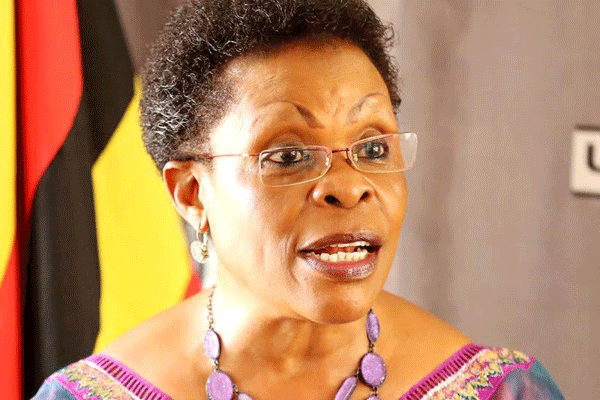IGG gives 24,000 leaders 30 days to declare wealth

The IGG, Ms Beti Kamya, at a media briefing in Kampala on February 21, 2023. PHOTO/ISAAC KASAMANI
What you need to know:
- Articles 233 (2) and 234 of the Constitution of Uganda and Section 4 of the Leadership Code Act, 2021, to declare to IGG their incomes, assets and liabilities every two years during the month of March.
The Inspector General of Government (IGG) has said the declaration of assets, income and liabilities by specified categories of leaders will take place for 31 days during the month of March.
Ms Beti Kamya told a media briefing yesterday in Kampala that the exercise will be launched next Wednesday in Lira City by the deputy Speaker of Parliament, Mr Thomas Tayebwa, “who will in effect be the first declarant this year.”
“The exercise will run from March 1 and close on March 31. Please take serious note that there is no provision in the law to extend this period,” Ms Kamya said.
She added: “Therefore any leader who will not have declared by March 31 will be in violation of the law.”
Mr Joram Magezi, the director of the Leadership Code, which is responsible for ensuring adherence to principles and values of integrity among leaders as specified in the Leadership Code Act, added that 24,000 officers are expected to declare wealth within the specified period.
The Leadership Code runs under the IGG’s office.
During the last two years, Mr Magezi said, 31 people have been sanctioned for non-declaration of assets.
Past culprits
“Out of these, 10 were convicted and fined while others were cautioned,” he said, adding: “And as of now, we have 19 ongoing cases, which are with the tribunal.”
Articles 233 (2) and 234 of the Constitution of Uganda and Section 4 of the Leadership Code Act, 2021, to declare to IGG their incomes, assets and liabilities every two years during the month of March.
Ms Patricia Achan Okiria, the deputy IGG, said the declaration will be digital using the IG-Online Declaration System (IG-ODS), which will be opened during the specified period.
Those to declare wealth
Those to declare assets include elected political leaders from sub-county level up to President. Others are those appointed by the President such as permanent secretaries, heads of public institutions, board members of public institutions, and executive leaders of political parties. In case of non-declaration, under declaration, over declaration and falsification of facts in declaration of assets, the sanctions include; fines, demotion, dismissal from office, and confiscation of illicitly acquired assets.




